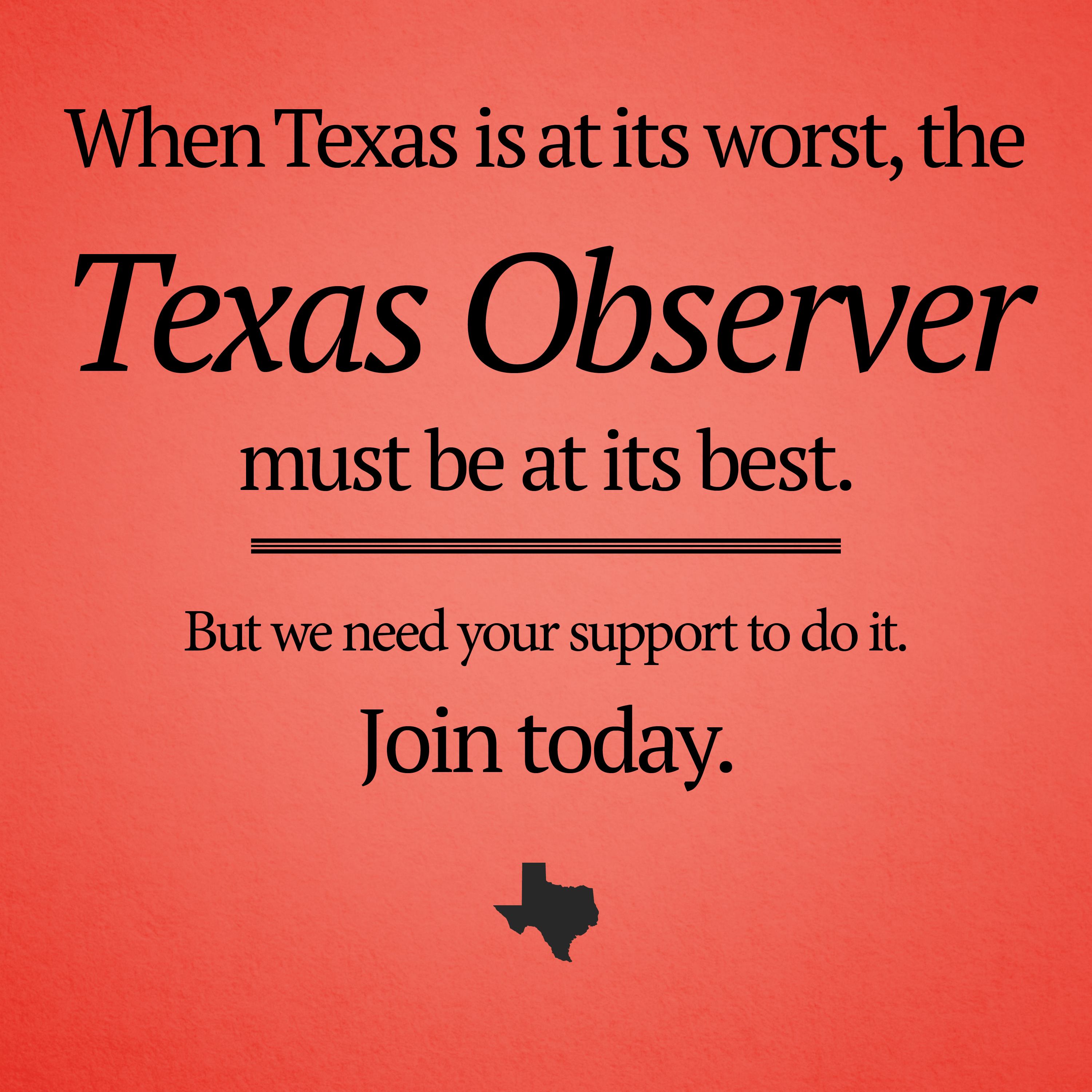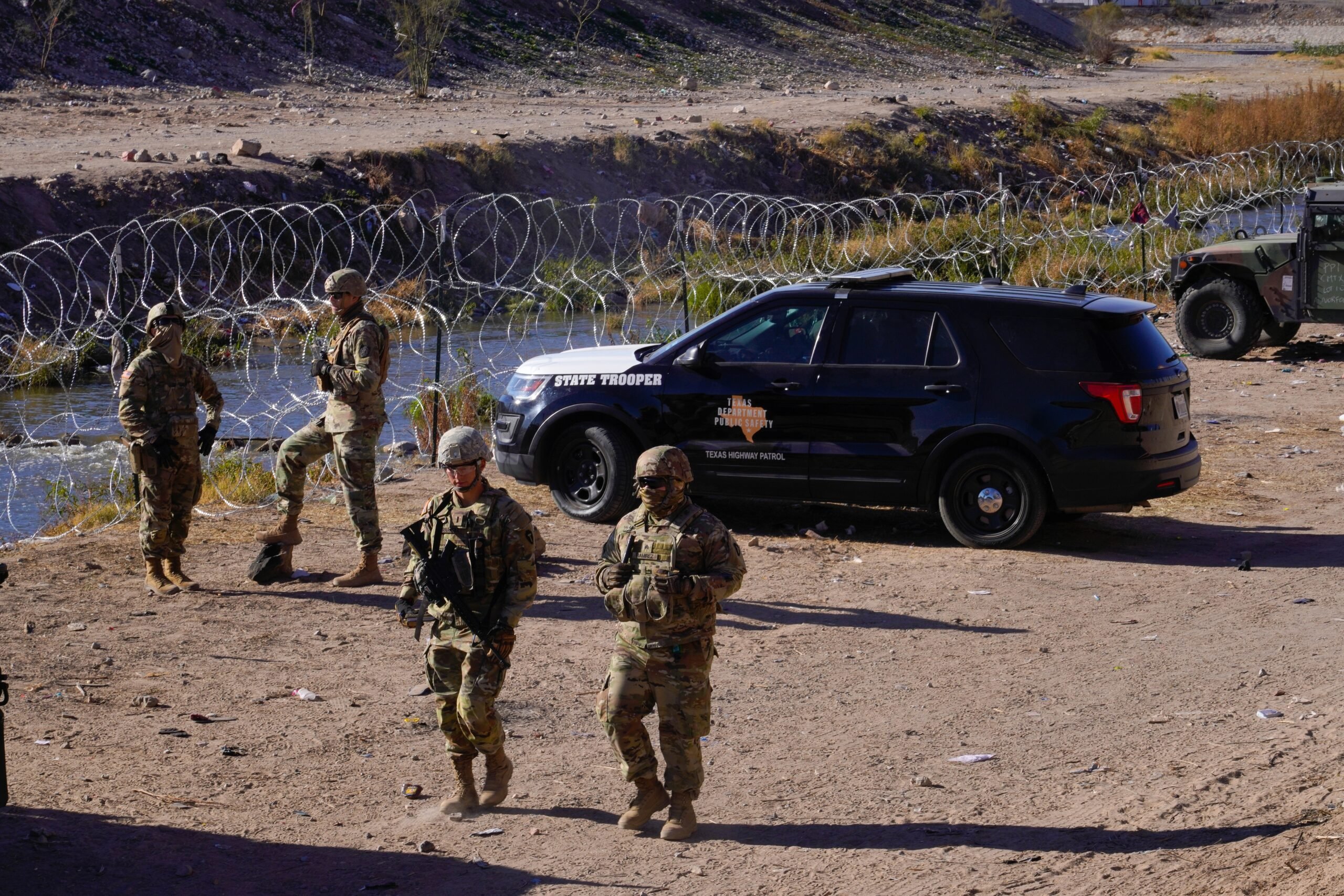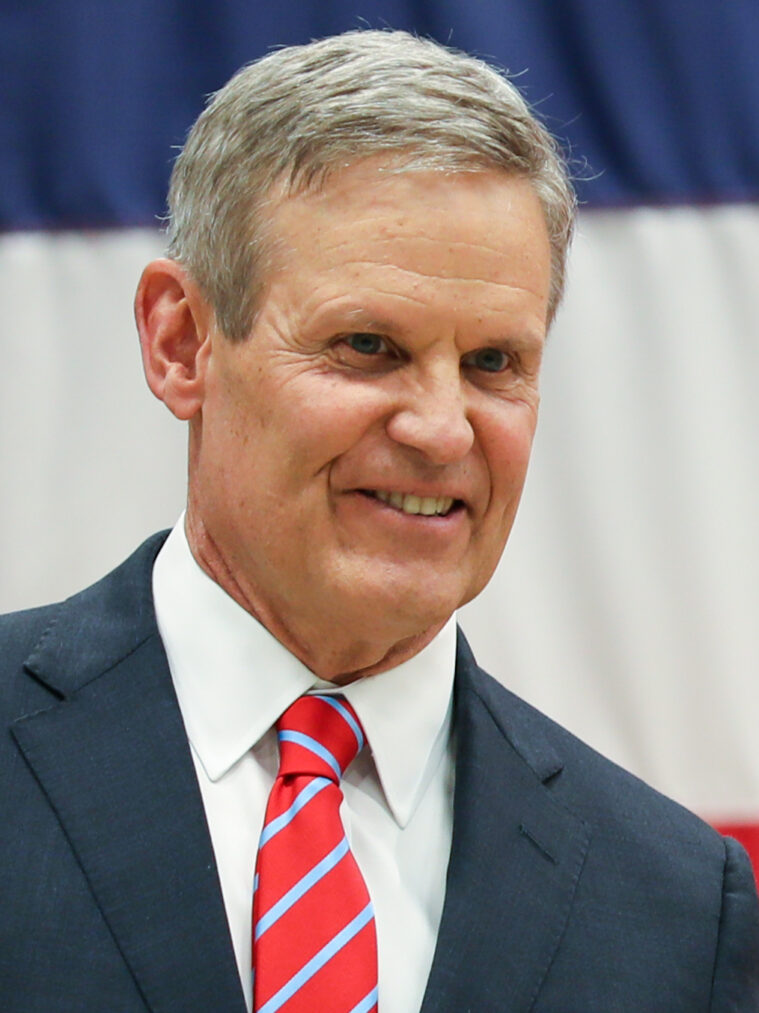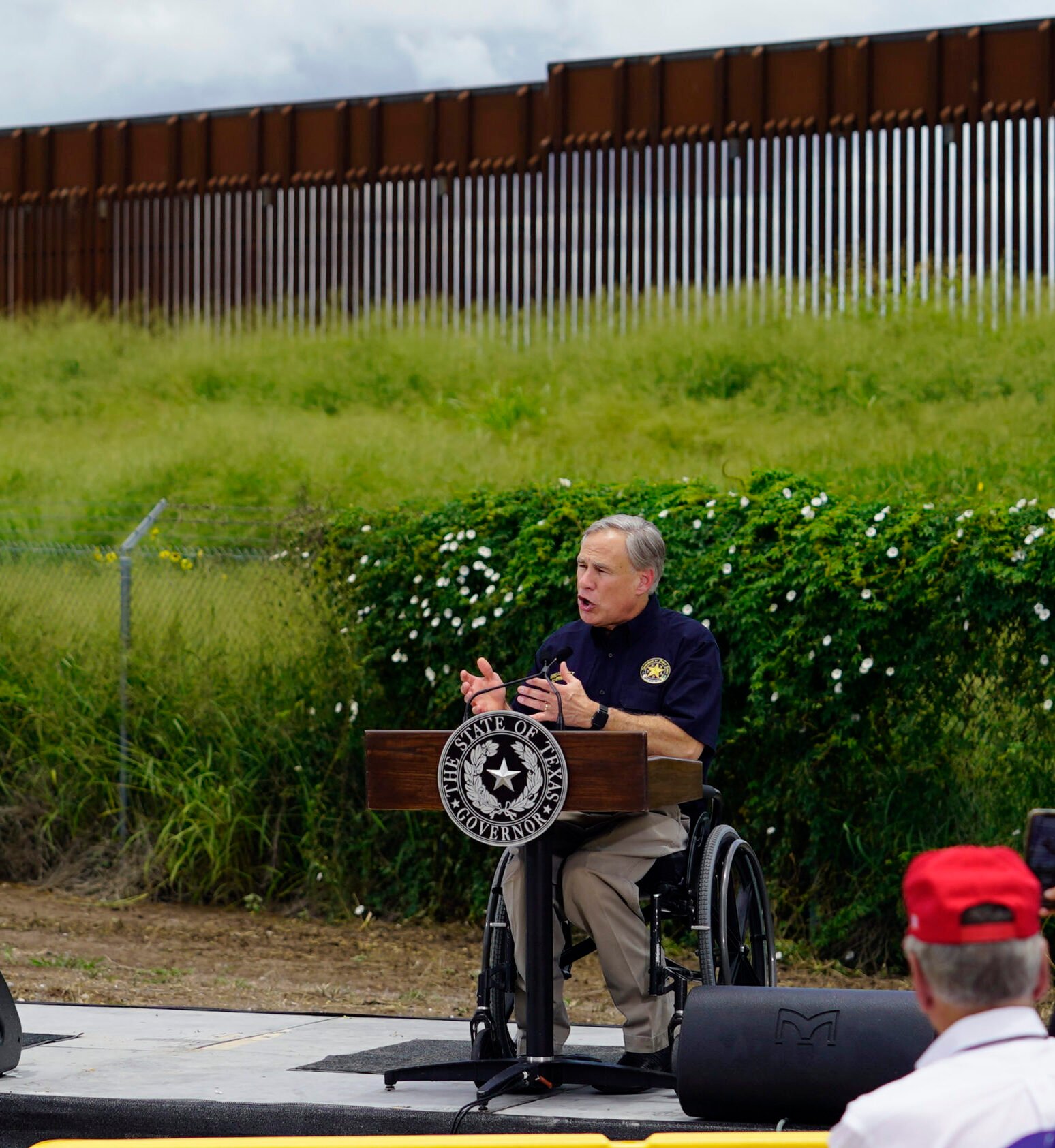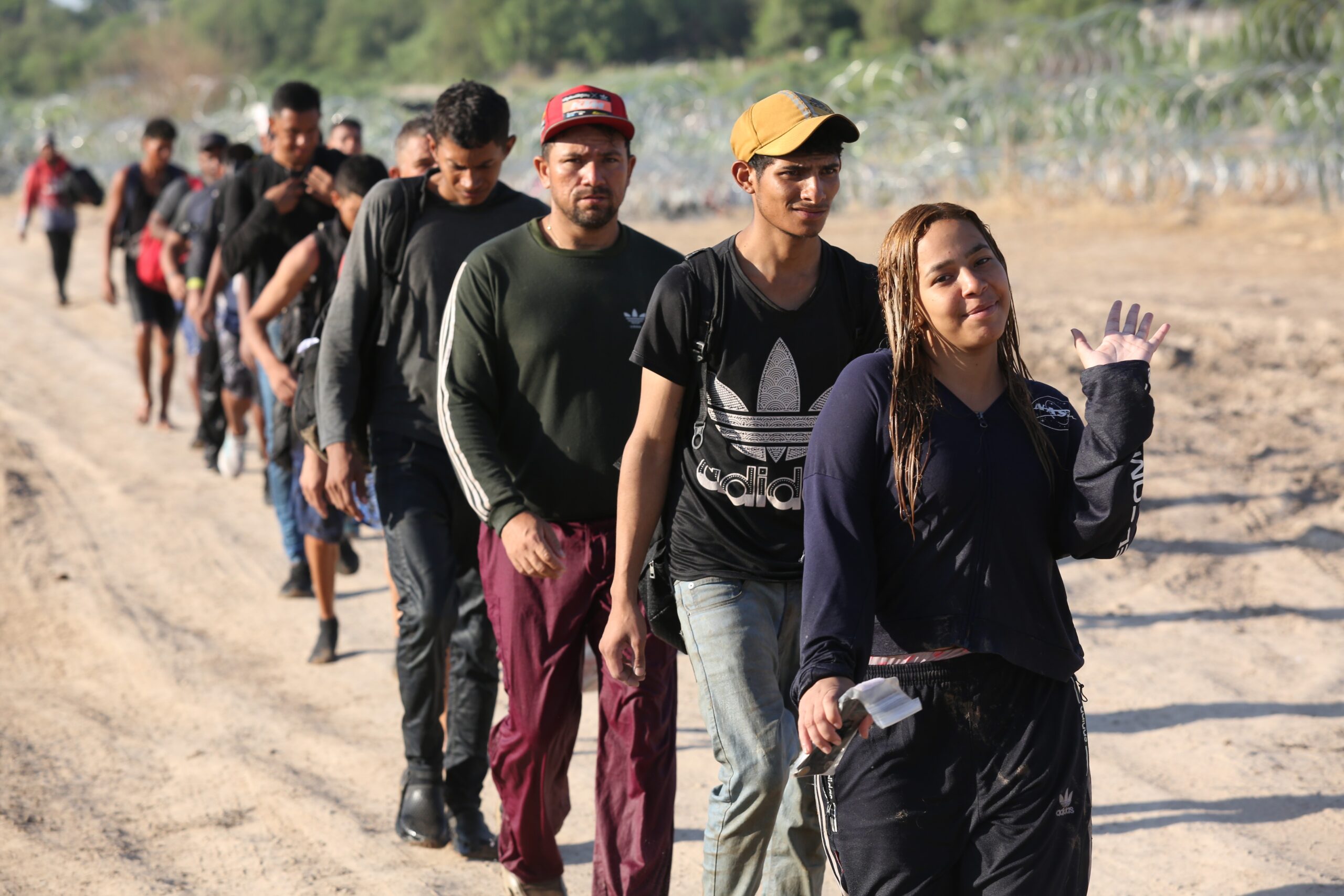
Abbott’s Border Standoff Fueled by a Climate Crisis He Helped to Create
Record levels of forced migration are tied to an environmental collapse that Republicans worsened on behalf of the fossil fuel industry.
Above: A group of migrants seeking U.S. asylum walk down a road beside the Rio Grande River to turn themselves in to the Border Patrol.
Originally published by Deceleration and reprinted with permission of the author. Deceleration is a nonprofit online journal producing original news and analysis responding to our shared ecological, political, and cultural crises.
“These weeks, I’m hearing people around me say it looks like the sun is getting closer to Haiti, the heat is unbearable. Yet, we know that the sun stays in its place, it is shade … [that] becomes a privilege.” —Jeffthanie, Haiti
Advocacy Brief: “In Our Words: Voices of Women of African Descent for Reproductive and Climate Justice”
Earlier this month, Homeland Security Secretary Alejandro Mayorkas took to MSNBC to discuss the border crisis. As video of the unprecedented press of refugees and migrants at Eagle Pass, Texas, flashed on the screen, he was asked what was behind the record-setting surge of desperate humanity at the border. He stressed three intersecting forces: climate, poverty, and rising authoritarianism.
“We are seeing the greatest number of displaced people, not only at our southern border, not only in the Western hemisphere, but across the globe,” Mayorkas said.
It’s true. More than 110 million people—the most ever recorded—were considered forcibly displaced in 2023 by “conflict, persecution, discrimination, violence and climate change,” according to the United Nations High Commissioner for Refugees.
Saying so didn’t sit well with Governor Greg Abbott, who blasted Mayorkas on X: “Climate change? Mayorkas is pathetic.”
If he sounds a little sensitive, there’s a reason for it.
Abbott entered Texas politics waging a war on the most vulnerable people on the planet by fighting efforts to reduce the United States’ contributions to rapidly accelerating global warming—warming that year after year has expressed itself in worsening weather disasters displacing tens of millions of people from their homes.
Last year, more than 12,000 people perished around the world in floods, storms, and wildfires, according to the international nonprofit Save the Children. That’s an uptick of 30 percent over the previous year. In the United States, there was a record-shattering $93B in damages caused by weather-driven disasters. Over the last 20 years, billion-dollar climate-related disasters have dramatically expanded, from a handful each year in the 1990s to 10 or more in the 2000’s to last year’s dozens. These mega-disasters have struck even as the scientific community ratcheted up its warnings about the course we are on–and as elected leaders like Abbott worked to slow or stop federal action intended to dampen the devastation.
Discussing root causes presents a dangerous distraction from the only story he wants us discussing, his beef with President Joe Biden. To keep us from debating actual solutions to the surge, he’s willing to go against the U.S. Supreme Court—the most conservative court in nearly 100 years—which still defers to the Constitutional primacy of the federal government in matters of the border and immigration. To do otherwise risks exposing his own contribution to the crisis.
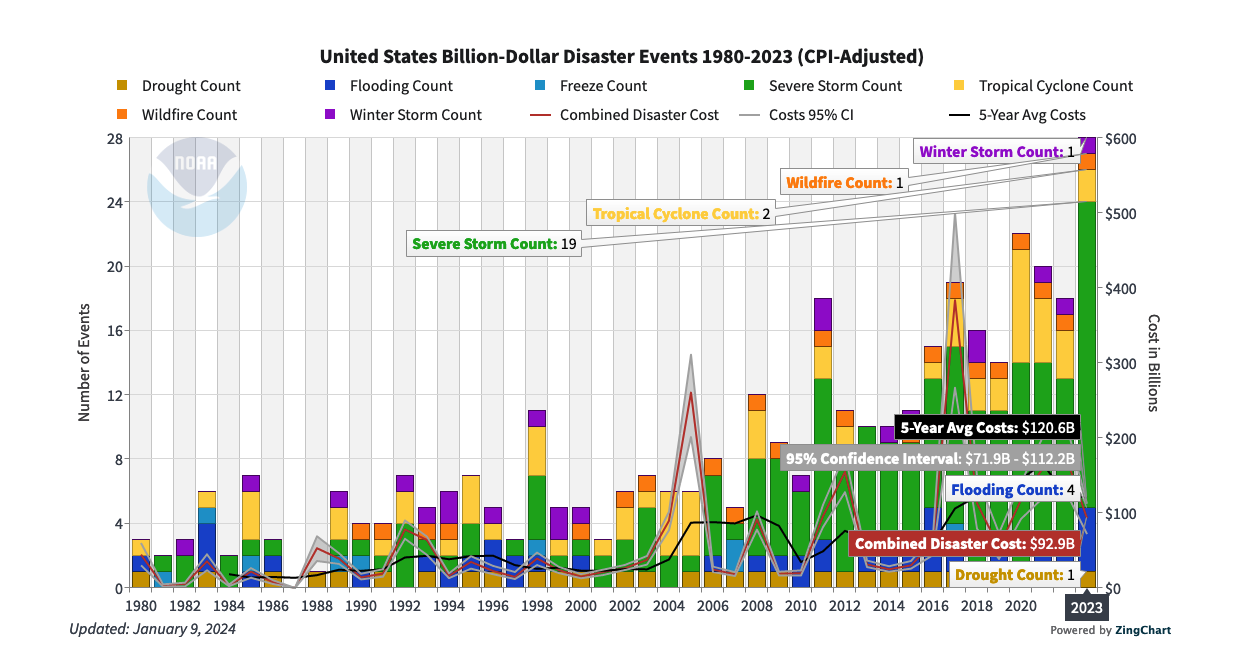
Abbott’s culpability is encapsulated in his brag a decade ago during his time as Texas Attorney General: “I go into the office, I sue the federal government and I go home.” Many of those lawsuits targeted US EPA efforts to regulate air pollution contributing to the climatic chaos we are experiencing today.
For those who need reminding: 2023 was the hottest year to date not only in Texas but the hottest that planet Earth has experienced in at least 120,000 years. The second hottest year on record was only a few years before that. And the hottest 10 years measured since modern record-keeping began? That’s right: All within the last decade. See a pattern? Moving into 2024, all arrows point to another record-breaker.
The world didn’t need to be like this. But the efforts of Abbott and others to undermine climate action have a supportive audience. Climate conspiracies seep through the pores of the internet in spite of promises of Big Tech tycoons to regulate disinformation. Yet the science behind this global cooking is deceptively simple:
Every year we wrench massive amounts of carbon from the ground in the form of coal, oil, and gas, crushing and incinerating those substances to create energy. We then shunt the wastes—the CO2, methane, and other heat-trapping gasses—into the atmosphere with predictable consequences.
The basic science behind this artificial warming overheating the planet has been understood for more than 100 years, such that policymakers who have worked to undermine action have a lot of explaining to do.
Most people today know that the weather events they are experiencing are both unprecedented and unnatural. More than 70 percent of those surveyed in Texas last fall said that they both understand global warming is happening and believe that the gasses contributing to it should be regulated as pollutants. Roughly half told the surveyors with the Yale Program on Climate Change Communication that they have personally suffered from global warming’s impacts.
The rejection of climate science intended to score political points on behalf of fossil fuel billionaires, the brand of denialism marking Abbott’s entire political life, is unraveling.
In short: the rejection of climate science intended to score political points on behalf of fossil fuel billionaires, the brand of denialism marking Abbott’s entire political life, is unraveling. Denying the warming of the planet that we are all experiencing smacks today of lunacy. So, to help protect the most heavily subsidized industry on the planet ($13M per minute for fossil fuels, according to the International Monetary Fund), Abbott and company need a new form of denialism.
A recent report by the Center for Countering Digital Hate (CCDH) marks the rise of what it calls “new denial.” Instead of arguing the heat we all feel is not real (as the fossil fuel industry and related trade groups and think tanks have done for decades), today’s deniers are instead trying to convince voters that climate solutions won’t work. If you’ve found yourself logging off social media lately mired in depression feeling as if there is no solution to the fix we are in, likely you have been caught up in one of these new denial claims.
CCDH researchers reviewed 4,458 hours of YouTube video content posted between 2018 to 2023. They found that “old denial” arguments, including claims that the Earth isn’t getting hotter, have dropped from 65% of all claims to only 30 percent. So-called “new denial” claims that suggest, for instance, that the solution is worse than the problem itself, now make up 70 percent of all detractor arguments. Attacks on climate solutions, in particular, have leapt by more than 21 points. The reality, however, is that there is a world of solutions—many underway, others waiting for us to activate.
If this generation and the ones hoping to follow us are to have a chance, we have got to take up this project honestly.
Crafting solutions requires shaking off the paralyzing sludge of industry disinformation campaigns and seeing these challenges with clear eyes. Instead of demonizing climate’s victims, we must demand policy changes that protect all people, wherever they live.
Demands made under the current and previous administration that migrants and refugees remain in Mexico while struggling to secure a court hearing to present their asylum claims have contributed to tent cities with no place to hide from the biting punishments of extreme weather. Unfortunately, with Abbott, the cruelty is the message. His inhumanity roared to the surface recently when he was caught lamenting the failure of his coercive violence against migrants. Talk radio host Dana Loesch asked him on January 5 what was the maximum amount of pressure he could apply to the situation before being running afoul of federal law. Abbot responded that he was doing everything but “shooting” migrants and refugees at the border, because, he said, “of course the Biden Administration would charge us with murder.”
And it’s true. The assault on humanity at the border is profound. To start, Operation Lone Star is intended to keep refugees and migrants from crossing the border to make their asylum claims, which is their right under both 1948’s Universal Declaration of Human Rights and the Refugee Convention of 1951. Then, at Eagle Pass, oversized buoys have been placed in the river with serrated metal plates between and underlain by submerged netting. Beyond that, miles of razor wire. For those who brave all of this, oftentimes with children in tow, there are frequently staged arrests, after agents lead migrants onto private property in order to lock them up on misdemeanor trespassing charges. Now he has demonstrated a willingness to stoke domestic violence by stoking those conspiracy minded who believe, as he insists, this humanitarian crisis is actually an orchestrated invasion.
Undoubtedly, it’s an untenable situation. But to begin to fix it we need to understand what is actually behind it. People just don’t leave their homes and families and communities because the United States left a back door unlocked somewhere. They undertake desperate voyages because their lives at home have become unbearable. After Mexico, most of the families arriving at the border this month (and they are nearly half family units) have been from Guatemala, Honduras, and El Salvador, Central America’s so-called Northern Triangle. It’s an area that has been severely stressed by extreme weather events and rising temperatures linked to global warming. A recent study by researchers at the University of Texas at Austin and the University of Utah found a definite correlation between dry growing seasons in the Northern Triangle and emigration to the United States of more than 70 percent even after controlling for factors like criminal violence and poverty. In other words, love him or hate him, Mayorkas is right to highlight climate. It gets far too little attention, which does little for developing strategies to ultimately solve the intersecting crises.
“Mounting evidence suggests that Venezuela is experiencing accelerating, chronic climate shocks and stresses, some of which are factored into people’s calculations whether to stay or leave.”
Consider the unraveling of Venezuela—and the stunning 7.7 million refugees and migrants streaming out of the country in recent years. This story is most often reported as a political one, with reporters highlighting state corruption or an economic over-reliance on oil. Rarely factored in is the contribution of years of extreme drought, rising seas, and other devastating climate impacts punishing the Venezuelan people who recently suffered their worst drought in at least 40 years. The USDA’s own assessment of Venezuela’s food security in 2022 didn’t mention drought or climate. Instead it limits blame to “anti-market policies, political turmoil … decline of the country’s oil industry … and hyperinflation.”
Researchers with Humanitarian Practice Networks, however, wrote around the same time that:
“Mounting evidence suggests that Venezuela is experiencing accelerating, chronic climate shocks and stresses, some of which are factored into people’s calculations whether to stay or leave.”
In Haiti, where lives have also teetered on the brink of anarchy, sending tens of thousands to seek shelter in the United States in recent years, the disequilibrium is not merely political. Global climatic forces and local survival strategies that can compound the impact of storms and floods both contribute to that instability, according to UNICEF.
“It is an incredible injustice to our children to leave behind a world that is worse than the one we inherited, let alone one that threatens to be increasingly uninhabitable by humans,” writes Imran Ahmed, CEO of the Center for Countering Digital Hate.
Another path is still possible. In much the same way that Texas has leapt ahead of most others in wind and solar energy production (and could be a global leader, as Time magazine pointed out recently) there is a huge opportunity here for the state. We could choose to tackle the climate crisis and related opportunities as a partner with the world to our south. Abbott has decided, instead, to declare war on them.
